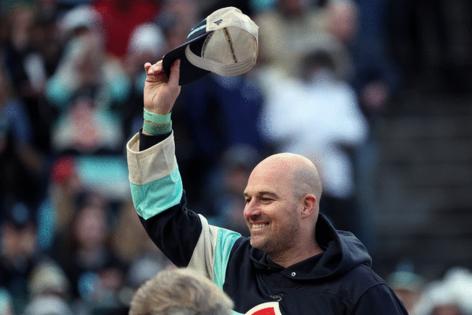Boston University CTE Center researchers trying to diagnose CTE during life, recruiting former football players
Published in News & Features
Researchers are hoping they can tackle the mystery of how to diagnose CTE in the living.
The Boston University CTE Center and other research centers have received a $15 million NIH grant to diagnose CTE during life, as the scientists recruit hundreds of former football players for the new study.
Former NFL quarterback Matt Hasselbeck is among the first to sign up for “The DIAGNOSE CTE Research Project-II.”
“As a former NFL player, I know I am at risk for CTE, but right now I am blessed to be feeling healthy,” said Hasselbeck, a three-time Pro Bowler during his 18-season career.
“As a former quarterback, I’m choosing to volunteer for DIAGNOSE CTE II to honor my teammates, especially those who blocked for me and took hits to the head, so I didn’t have to,” he added. “I encourage former college and pro football players age-50 and over to join me in signing up for the study to help researchers learn how to diagnose and treat CTE.”
Right now, CTE only can be diagnosed definitively after death following an autopsy.
Researchers in the study will look at new disease biomarkers to help doctors diagnose the progressive brain disease chronic traumatic encephalopathy in living patients.
Scientists are also trying to learn how to differentiate CTE from similar diseases like Alzheimer’s.
“This study will create unprecedented data sets needed to accurately diagnose CTE during life,” said Michael Alosco, associate professor of neurology at the Boston University Chobanian & Avedisian School of Medicine.
“It will fill two missing links in the literature preventing us from developing definitive diagnostic criteria for CTE during life,” Alosco added. “First, we need longitudinal studies that include brain donation. Second, we need to better compare people at risk for CTE to other disease groups.”
Although this study will only study male football players, researchers said the findings will benefit all groups at risk for CTE — including male and female contact sports athletes and military veterans.
The study will examine new potential biomarkers using blood and brain imaging to help doctors accurately diagnose CTE in living patients.
Participants will enroll in one of the five NIA-funded Alzheimer’s disease research centers to complete neurological, cognitive and neuropsychiatric exams, multimodal brain imaging, tau PET imaging, and blood draws.
The information will be analyzed to characterize the specific signs, symptoms, and biomarkers of people at risk for CTE. Travel support for participants is provided.
Chris Nowinski and the Concussion Legacy Foundation will lead recruitment efforts. Robert Turner, an associate professor from Duke University, will help with recruitment focusing on understudied groups.
The DIAGNOSE CTE Research Project-II will recruit 350 men, age 50 and older, including 225 former college and professional football players, 75 control participants and 50 people with Alzheimer’s disease.
Former football players, as well as men who have no history of contact and collision sports, who are interested in participating are encouraged to sign up for the Concussion Legacy Foundation Research Registry at CLFResearch.org.
_____
©2025 MediaNews Group, Inc. Visit at bostonherald.com. Distributed by Tribune Content Agency, LLC.







Comments